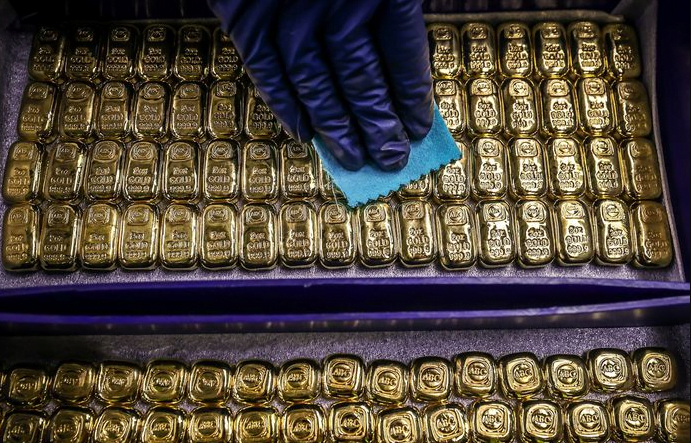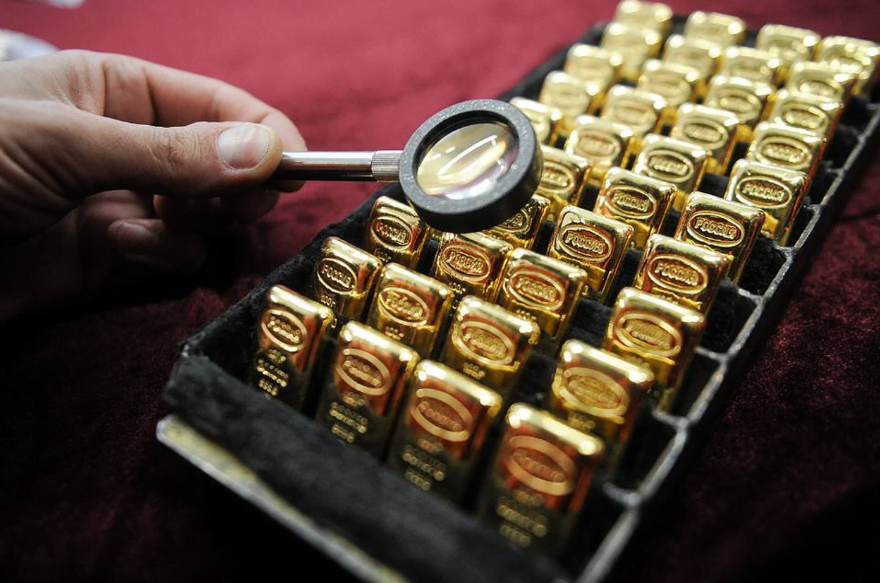Choosing a career path is a crucial decision, and one area of interest that has piqued the curiosity of many is the precious metals industry. Precious metals, such as gold, silver, platinum, and palladium, have long been valued for their rarity and various industrial applications. This article explores the potential of a career in the precious metals industry, shedding light on its prospects, opportunities, and considerations.
is precious metals a good career path
A career in precious metals can be an appealing option for individuals interested in the mining, refining, trading, or investment aspects of the industry. However, it is important to evaluate various factors before considering it as a long-term career path.
One of the key advantages of a career in precious metals is the potential for substantial earning opportunities. Precious metals such as gold, silver, and platinum are globally recognized as valuable assets, which can translate into lucrative job prospects. Roles in mining engineering, refining, trading, or investment advisory can offer attractive salaries and benefits.
Furthermore, the precious metals industry has a global scope, providing professionals with opportunities to work in diverse locations and engage with international markets. This global exposure can broaden one’s perspective, enhance cultural understanding, and foster professional growth.
However, it’s essential to acknowledge the potential challenges associated with a career in precious metals. Market volatility is one significant aspect to consider. The prices of precious metals can be influenced by economic conditions, geopolitical events, and investor sentiment, leading to fluctuations in demand and profitability. Professionals in trading or investment-related roles must be prepared to navigate these fluctuations and develop strategies to mitigate risks.
Another consideration is the environmental and social responsibility associated with the industry. Sustainable practices, responsible mining, and ethical sourcing are increasingly important in the precious metals sector. Professionals need to stay updated on industry regulations, promote environmental stewardship, and ensure compliance with ethical standards.
Moreover, specific roles within the precious metals industry, such as mining and exploration, may involve inherent risks and safety concerns. Individuals pursuing such careers should be prepared to prioritize safety protocols and manage potential risks associated with their work.
To excel in a career in precious metals, individuals should acquire relevant education and skills. Specializations in fields like geology, mining engineering, metallurgy, finance, or business administration can provide a strong foundation. Gaining practical experience through internships or entry-level positions is also beneficial for building industry-specific knowledge and establishing professional connections.
The Appeal of the Precious Metals Industry
- Stability and Resilience: Precious metals have demonstrated resilience throughout history, often serving as a safe-haven investment during economic uncertainties. This stability contributes to the attractiveness of the industry, as it provides a sense of security and long-term potential.
- Global Demand: The demand for precious metals remains high in various sectors, including jewelry, electronics, automotive, aerospace, and medical industries. This widespread demand ensures a consistent need for professionals in the precious metals industry.
- Diverse Career Options: The precious metals industry offers a range of career paths. From mining and exploration to refining, trading, sales, and investment analysis, individuals with different skill sets can find suitable roles within this sector.
Factors Influencing Career Success
- Education and Training: A solid foundation in relevant fields such as metallurgy, mining engineering, geology, finance, or business administration can provide a competitive edge. Pursuing formal education or specialized courses in these areas can enhance career prospects.
- Technical Expertise: Developing a strong understanding of the industry’s technical aspects, such as ore processing, refining techniques, and market analysis, can be invaluable for career growth and advancement.
- Networking and Industry Involvement: Building a network within the precious metals industry can open doors to new opportunities. Participation in industry conferences, professional associations, and trade shows can facilitate connections with industry experts and potential employers.
Job Opportunities in the Precious Metals Industry
- Mining and Exploration: This sector involves extracting precious metals from the earth and discovering new deposits. Job roles include geologists, mining engineers, technicians, and environmental specialists.
- Refining and Assaying: Precious metals undergo refining processes to obtain pure forms suitable for various applications. Careers in this field include refiners, assayers, and quality control professionals.
- Trading and Sales: The trading and sales sector involves buying, selling, and brokering precious metals. Jobs in this area encompass traders, brokers, sales representatives, and market analysts.
- Research and Development: Companies in the precious metals industry invest in research and development to explore innovative applications for these metals. Opportunities exist for materials scientists, engineers, and researchers.
Considerations and Challenges
- Market Volatility: The precious metals industry experiences market fluctuations influenced by economic factors, geopolitical events, and investor sentiment. Professionals in this industry must adapt to changing market conditions and manage associated risks.
- Global Competition: The industry is highly competitive, requiring individuals to stay updated on market trends, technological advancements, and industry practices to remain competitive.
- Environmental and Social Responsibilities: Responsible mining practices and sustainability are critical concerns in the precious metals industry. Professionals in this field should strive to uphold ethical standards and promote environmentally responsible practices.
The Pros and Cons of a Career in Precious Metals

A career in the precious metals industry offers unique advantages and considerations. On one hand, the industry presents exciting opportunities, while on the other, it poses certain challenges. Understanding the pros and cons can help individuals make informed decisions about pursuing a career in this field.
Pros:
- Lucrative Earning Potential: The precious metals industry can provide substantial earning potential, especially in roles such as mining engineers, traders, or sales representatives. As the demand for precious metals continues to grow, professionals with the right skills and expertise can command competitive salaries and attractive benefits.
- Global Scope: Precious metals have a global market, which means professionals in this industry can explore opportunities and work with international clients. This global exposure offers a chance to engage with diverse cultures, expand professional networks, and gain a broader perspective on the industry.
- Job Security: The consistent demand for precious metals, driven by various industries and investment purposes, contributes to job security within the industry. Professionals with specialized knowledge and skills are likely to find stable employment opportunities even during economic fluctuations.
Cons:
- Market Volatility: The precious metals market is influenced by economic factors, geopolitical events, and investor sentiment. Price fluctuations can impact profitability and job stability, especially for those in trading or investment-related roles. Professionals must be prepared to navigate market volatility and adapt their strategies accordingly.
- Environmental and Social Responsibility: The extraction and processing of precious metals can have significant environmental impacts. Addressing sustainability concerns and adhering to responsible mining practices are vital considerations in this industry. Professionals need to stay updated on environmental regulations and actively promote sustainable practices.
- Risk and Safety: Certain roles within the precious metals industry, such as mining and exploration, involve inherent risks and safety considerations. Working in hazardous environments, adhering to strict safety protocols, and managing potential risks are crucial aspects to be aware of in these roles.
How to Get Started in a Career in Precious Metals
Getting started in a career in precious metals requires a combination of education, skills development, and networking. Here are some steps to consider:
- Education and Specialization: Pursue relevant education in fields such as geology, mining engineering, metallurgy, finance, or business administration. Specializing in a specific aspect of the precious metals industry, such as refining or trading, can also enhance career prospects.
- Gain Practical Experience: Seek internships, apprenticeships, or entry-level positions in companies or organizations involved in the precious metals industry. Practical experience will provide valuable insights into the industry’s workings, build industry-specific skills, and establish professional connections.
- Network and Engage: Attend industry conferences, seminars, and trade shows to network with professionals in the field. Join professional organizations and online communities related to precious metals to stay updated on industry trends, connect with mentors, and access job opportunities.
- Continuous Learning: The precious metals industry is constantly evolving. Stay updated on market trends, technological advancements, and industry practices through continuous learning. Engage in professional development activities, attend workshops, and pursue relevant certifications to enhance your skill set.
The Future of the Precious Metals Industry
The future of the precious metals industry looks promising, with several factors shaping its trajectory:
- Technological Advancements: Innovation and technological advancements are transforming the way precious metals are extracted, processed, and utilized. Developments in mining techniques, refining processes, and recycling methods are expected to increase efficiency, reduce environmental impact, and create new opportunities within the industry.
- Sustainable Practices: Environmental and social responsibility are gaining prominence in the industry. Companies are increasingly adopting sustainable practices, focusing on ethical mining, responsible sourcing, and environmental stewardship. The integration of sustainable practices will shape the industry’s future and open doors for professionals with expertise in these areas.
- Investment Demand: Precious metals continue to be sought after as investment assets. Economic uncertainties, inflation concerns, and geopolitical factors influence investor interest in precious metals. Professionals involved in trading, investment advisory, or financial analysis roles will continue to play a crucial role in meeting investor demand.
- Evolving Consumer Trends: Changing consumer preferences and evolving industry standards are influencing the demand for responsibly sourced and ethically produced precious metals. Professionals involved in marketing, branding, and consumer engagement will need to adapt to these changing trends and develop strategies that align with consumer expectations.
Conclusion: A career in the precious metals industry can offer exciting opportunities for those interested in a dynamic and globally significant sector. With stable demand, diverse career paths, and potential for growth, individuals with the right skills and passion for the industry can find fulfilling and rewarding careers. However, it is essential to consider market volatility, global competition, and environmental responsibilities as part of the overall career decision. With the right education, technical expertise, networking, and industry involvement, a career in the precious metals industry can be a lucrative and fulfilling path for those willing to embrace its challenges and opportunities.

